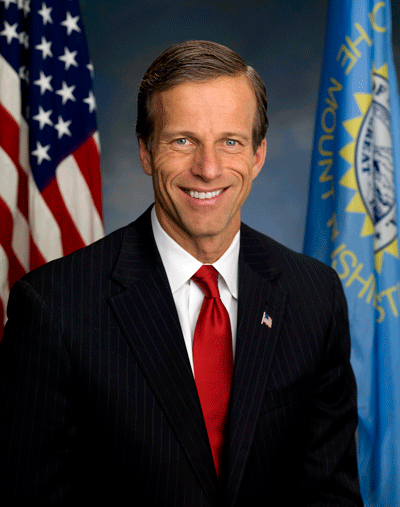FAA Bill Means Safer and Stronger Skies
By Sen. John Thune

Millions of Americans will board airplanes this year to travel throughout the United States and the world. They depend on a robust and efficient national aviation system to keep the skies safe and traffic running smoothly. Congress recently passed a bill to reauthorize the Federal Aviation Administration (FAA) that includes some significant provisions to create a better experience for the traveling public. I’m proud to have secured several provisions that will strengthen aviation safety, improve airport infrastructure, and streamline the use of next generation technologies.
The United States is currently facing a pilot shortage, which has resulted in reduced air service at airports across the country, especially smaller airports like those in rural states like South Dakota. My proposal to improve pilot training will help address this shortage by making pilot training more accessible and improving training quality.
My proposal, which is based on a recommendation from an independent board, would provide prospective pilots with a new pathway to meet their certification requirements that includes training in advanced simulators. For obvious reasons, standard flight training hours in a cockpit don’t involve deliberately flying into a storm or dealing with fires or engine failure. But simulator training offers prospective airline pilots the chance to experience those situations, and deal with them again and again until their response is fine-tuned. I’m glad this proposal was included in the final bill because it’s a win-win for addressing the pilot shortage and improving the quality of training airline pilots receive.
I was also able to secure provisions in this bill to support small airports as they expand flight service and upgrade their facilities. One such provision allows communities to receive multiple grants from a program designed for small community air services, which will make it easier to expand sorely needed air service in rural communities. Another gives small airports more flexibility to use certain federal funding for terminal improvements, which will enable rural airports to expand access even as construction costs rise. These elements of the bill will help ensure many of the airports that South Dakotans use can make upgrades in facilities and flight offerings that will benefit South Dakotans.
The FAA bill goes beyond just commercial flights and airplanes. This year’s bill also includes my bipartisan legislation related to drone flights. The Increasing Competitiveness for American Drones Act will streamline the approval process for beyond-visual-line-of-sight drone flights, which would clear the way for drones to be used for commercial transport of goods across the country. The wider deployment of drones have transformative potential for our economy, including innovative opportunities in transportation and agriculture that would benefits places like South Dakota. And it will ensure the United States remains competitive in a growing industry that is increasingly dominated by competitors like China.
This year’s FAA reauthorization bill takes important steps to keep America at the forefront of aviation. It keeps America’s skies safe, increases flight access, and ensures American innovation will continue soaring to new heights. I’m proud of the work that my colleagues and I put into this bill, and I look forward to continued American leadership in the skies.
###
